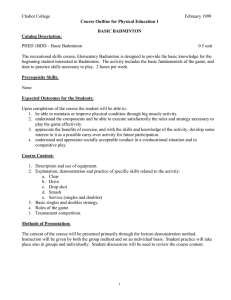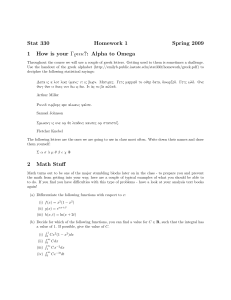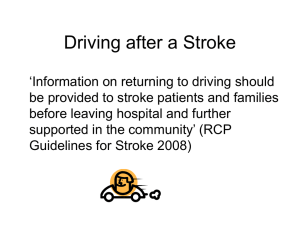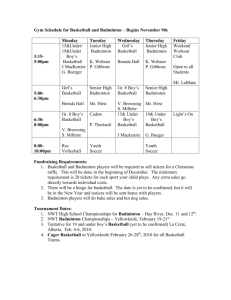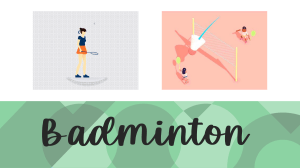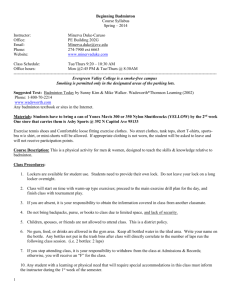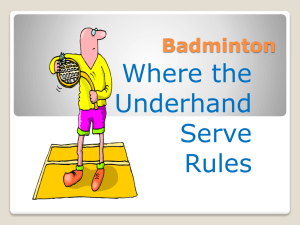Methods of Practice – for developing skills
advertisement
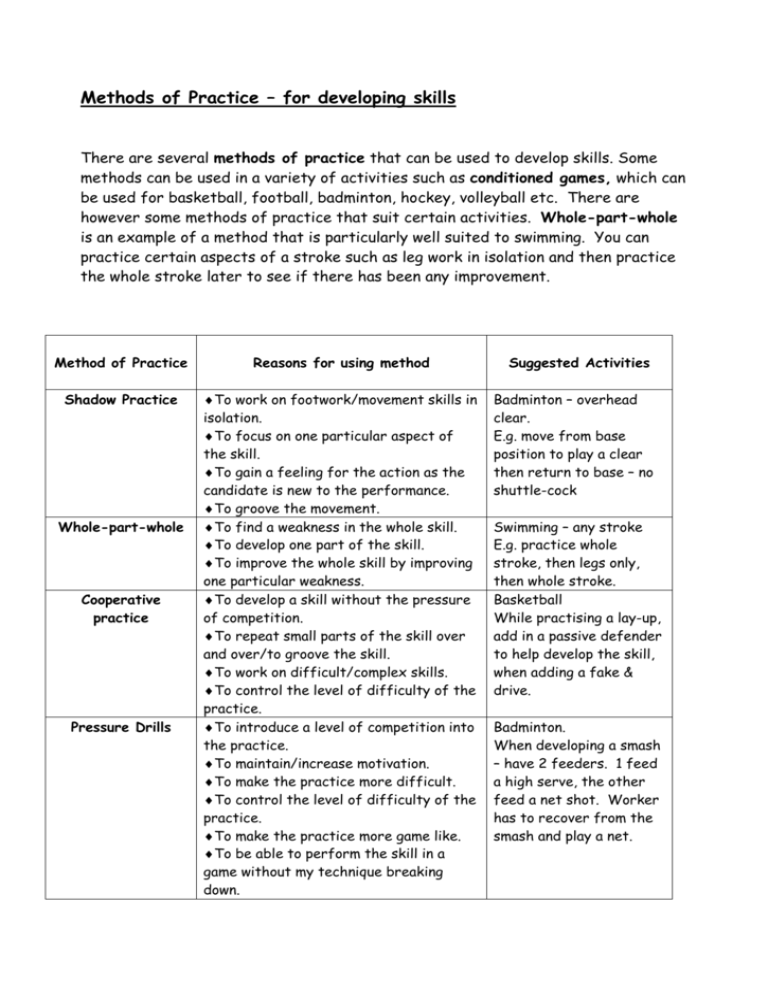
Methods of Practice – for developing skills There are several methods of practice that can be used to develop skills. Some methods can be used in a variety of activities such as conditioned games, which can be used for basketball, football, badminton, hockey, volleyball etc. There are however some methods of practice that suit certain activities. Whole-part-whole is an example of a method that is particularly well suited to swimming. You can practice certain aspects of a stroke such as leg work in isolation and then practice the whole stroke later to see if there has been any improvement. Method of Practice Reasons for using method Shadow Practice To work on footwork/movement skills in isolation. To focus on one particular aspect of the skill. To gain a feeling for the action as the candidate is new to the performance. To groove the movement. To find a weakness in the whole skill. To develop one part of the skill. To improve the whole skill by improving one particular weakness. To develop a skill without the pressure of competition. To repeat small parts of the skill over and over/to groove the skill. To work on difficult/complex skills. To control the level of difficulty of the practice. To introduce a level of competition into the practice. To maintain/increase motivation. To make the practice more difficult. To control the level of difficulty of the practice. To make the practice more game like. To be able to perform the skill in a game without my technique breaking down. Whole-part-whole Cooperative practice Pressure Drills Suggested Activities Badminton – overhead clear. E.g. move from base position to play a clear then return to base – no shuttle-cock Swimming – any stroke E.g. practice whole stroke, then legs only, then whole stroke. Basketball While practising a lay-up, add in a passive defender to help develop the skill, when adding a fake & drive. Badminton. When developing a smash – have 2 feeders. 1 feed a high serve, the other feed a net shot. Worker has to recover from the smash and play a net. Method of Practice Reasons for using method Suggested Activities Small-sided games To practice in a game situation but be able to control aspects of the game. To work in a game situation but increase the number of times that skill is performed. To improve decision making skills. To improve problem solving skills. To work in a game situation but focus on specific skills. To improve decision making skills. To improve problem solving skills To increase motivation/confidence to perform the skill in a game. Skills can be learned progressively. Each part of the skill is introduced, practised and mastered before a new part is introduced. The complexity of the skill can gradually be increased. Any team game. Reduce the size of teams to include all players. E.g. volleyball 3 v 3. Conditioned games Gradual Build up Any team or individual game. In badminton – one person attack, the other defend. Football – only 2 touches allowed. Basketball. While practising the lay up, start by just running and throwing the ball, add in dribbling then finally add in a passive defender.
